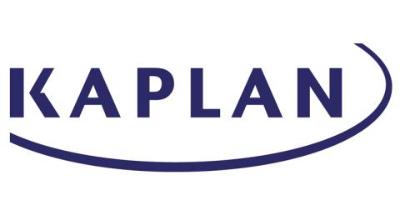How to Drive Impactful Growth with a Modern Finance Department

Companies that place too much focus on efficiency without appropriate resourcing to then leverage it will impede their own growth.
By Anita Samojednik.
Increasingly, the demands placed upon the finance department of a company are multifaceted and rapidly changing. Traditionally, finance departments were ancillary to leadership. They would provide the numbers and data that executives used to inform big business decisions, but they wouldn’t necessarily be involved in making those decisions.
Today, many senior finance executives see finance and accounting as a critical component to their company’s long-term success, with 38 percent investing in the finance and accounting team to enable greater efficiency, according to the 2022 Financial Maturity Study. Yet, companies that place too much focus on efficiency without appropriate resourcing to then leverage it will impede their own growth. Those that prioritize a flexible model that can drive both efficiency and growth will be best positioned to navigate economic challenges and build long-term competitive advantages.
With recent shifts in the availability of technology tools and an openness to non-traditional financial resourcing solutions, modern finance functions can, and should, increasingly take on a much more strategic role to drive that efficiency and growth.
Learn more about Paro - the Future of Tax, Finance & Accounting.
Leveraging automation to advance finance functions
New technology and automated processes have increasingly relieved finance teams of repetitive, manual tasks, freeing them up to focus more on analysis and strategy to add increased value to the organization. For example, full-service bookkeeping and accounting platforms like QuickBooks or NetSuite automatically perform several operational functions like accepting business payments, payroll, and more.
Employing rapid automation of bookkeeping and accounting procedures empowers finance departments and accounting firms to move resources away from administrative tasks toward more strategic endeavors. With large amounts of data in one place, analysts, controllers, and CFOs can now easily perform customized analyses, recognize patterns, and make better-informed business decisions. New technologies help augment finance roles, enabling them to be more analytical and bring strategic insight to the table due to the reduced need for people to focus solely on data collection.
This digital transformation implies that future finance and accounting professionals will need more than mastery of financial concepts. According to McKinsey’s Finance 2030 article, finance professionals will also need skills in programming and computing analytics so they can easily navigate complex finance and artificial intelligence (AI) tools. They will also need to be able to translate the outputs into plain English for stakeholders.
In the future, the finance industry may see more advanced technologies manage additional repetitive tasks. For example, Optical Character Recognition (OCR), AI, and speech analytics technology may eventually make it so invoice transactions and communications can be managed by software. With these changes, finance departments and accounting firms will have the opportunity to shift their focus toward being key decision-makers and strategic advisors for a business.
Automated technology powered by AI and machine learning can not only help remove the tedious tasks of finance work but make it more meaningful and attractive for both current and prospective employees.
Learn more about Paro - the Future of Tax, Finance & Accounting.
Modernizing finance and accounting teams with fractional talent solutions
Traditionally, finance departments and accounting firms have limited themselves to hiring full-time employees within their geographic region. However, in recent years, many finance departments have shifted their approach to rely on highly skilled freelance – or fractional – professionals, focusing on precise proficiencies rather than physical proximity.
Working with fractional talent offers many benefits for employers and employees alike, including:
- Flexible subject matter expertise can relieve bandwidth constraints and help balance the work of full-time team members.
- The agility offered by hiring fractional talent allows companies to scale up and down as needed.
- The specialized, on-demand support of fractional workers enables accounting firms to expand service offerings based on dynamic needs.
- Freelance finance professionals often have years of experience with top-tier firms tackling the specific business problem a company may be trying to solve.
- Unlike a full-time employee, companies don’t have to engage the same professional for every project. Businesses are free to source the person who has the right skills, experience, and credentials for each specific business need.
- Companies only have to pay fractional financial talent for the service provided. This can save the company money in recruiting, benefits, and overhead costs. It also provides the option for working within the company budget for additional resources.
Companies that outsource remote finance talent allow themselves more freedom to hire the best person for the job who can bring the most value, regardless of location or time zone. In this way, augmenting staff with freelance finance professionals gives companies a wider pool of top talent to choose from.
Driving business efficiency and innovation calls for finance departments to balance core finance functions and roles while adapting to new technology and the future of work. This digital transformation requires companies to develop modern finance departments with advanced technology augmented by flexible, focused teams of experts that help companies solve problems and drive growth.
Learn more about Paro - the Future of Tax, Finance & Accounting.
=======
Anita Samojednik is Chief Executive Officer of Paro, an AI-powered marketplace disrupting the way companies access on-demand financial talent. Prior to joining Paro, Anita had more than 15 years of executive leadership experience at Groupon, Ladders and Vonage, where she ran multinational two-sided marketplaces and e-commerce enterprises while leveraging cutting-edge machine learning and artificial intelligence techniques. Anita serves as a member of the advisory board at the Columbia Business School, Deming Center.
Apply Now To Get Started with ParoShare This Article
What's Trending?
Trending topics & tools for the CPA community
How Firms are Rethinking Reasonable Comp (Quick Video)
It’s a short video and makes the value of repeatable, data-backed approach clear (especially compared to spreadsheets, gut checks and one-off calculations).
Learn how 8am CPACharge delivers clarity and confidence for accounting firms.
8am™ CPACharge brings invoices, payments, and reconciliation together in a solution designed to make your day easier from start to finish.
Seniors on Social Security Could Face $460 Monthly Cut to Benefits
Jim Komoroski, RSSA®, is quoted in Newsweek, offering expert insight into the projected monthly cuts to Social Security benefits should Congress fail to act.
Resources
Valuable information provided by our sponsors.
Specialize in Social Security
Looking to enhance your retirement planning expertise? Your solution: pursue the Registered Social Security Analyst®...
CPAdirectory members have access to discounted auto and home insurance
At CPAdirectory, we think it's a good thing to provide our members with access to...
Free CPE Course: ChatGPT for Tax Pros — Limited Offer
CPAdirectory and CCH CPELink are giving you free access to the on-demand course: ChatGPT for...
PE Deals In Accounting: Valuations, Structure, Tradeoffs
In this webinar, you’ll hear from firm leaders and industry experts who will share real-world...
Stand Out as a Trusted Social Security Expert with the RSSA® Designation
Designed for CPAs, the Registered Social Security Analyst® (RSSA®) designation provides advanced training to help...
How Firms are Rethinking Reasonable Comp (Quick Video)
It’s a short video and makes the value of repeatable, data-backed approach clear (especially compared...













